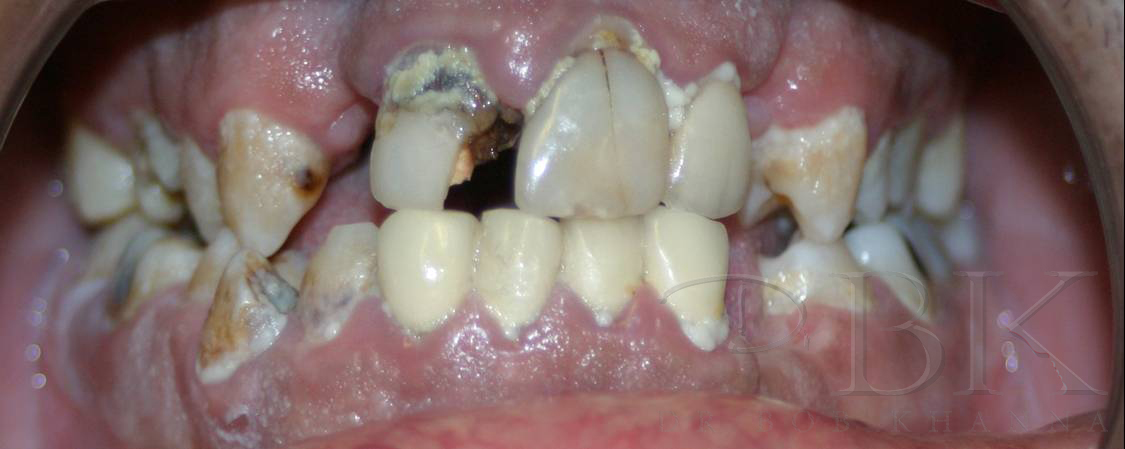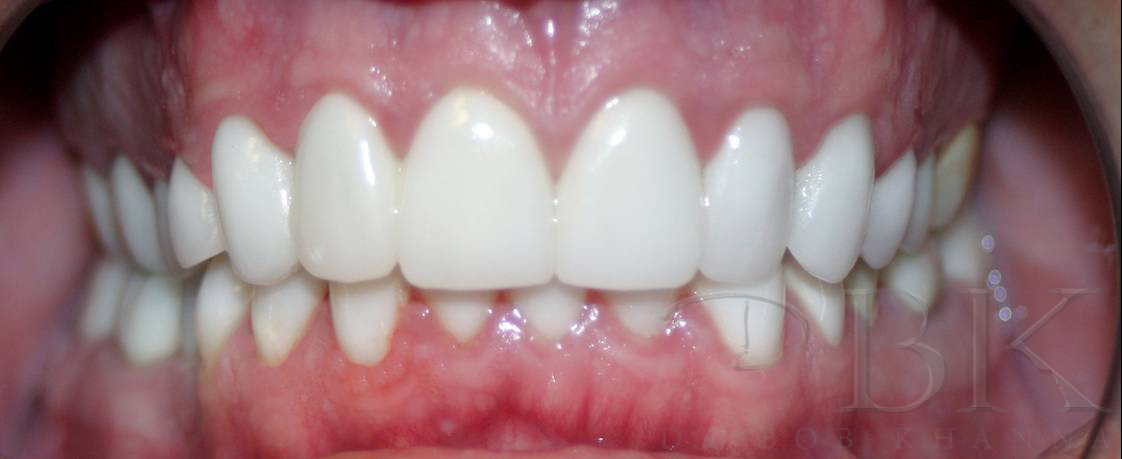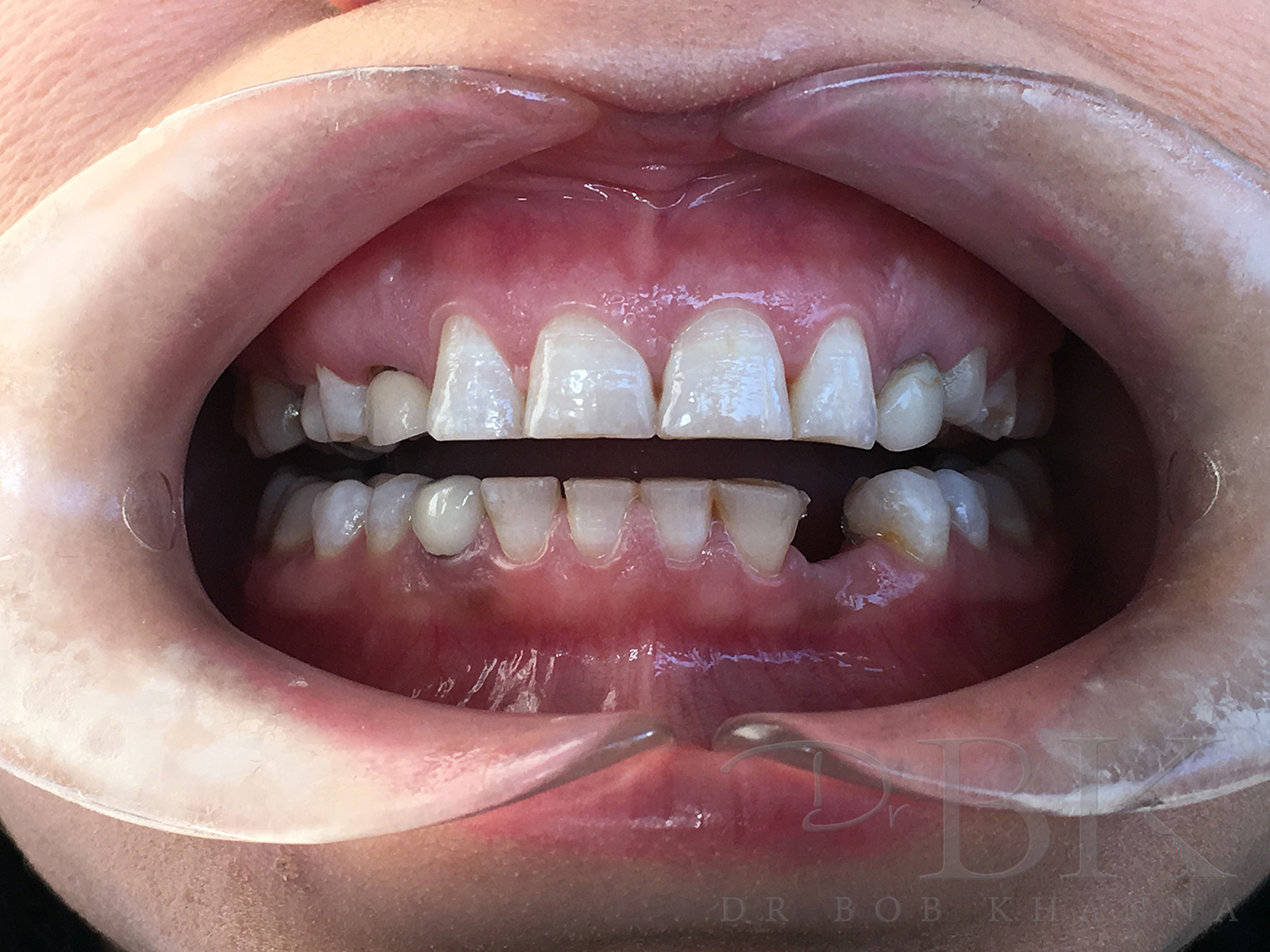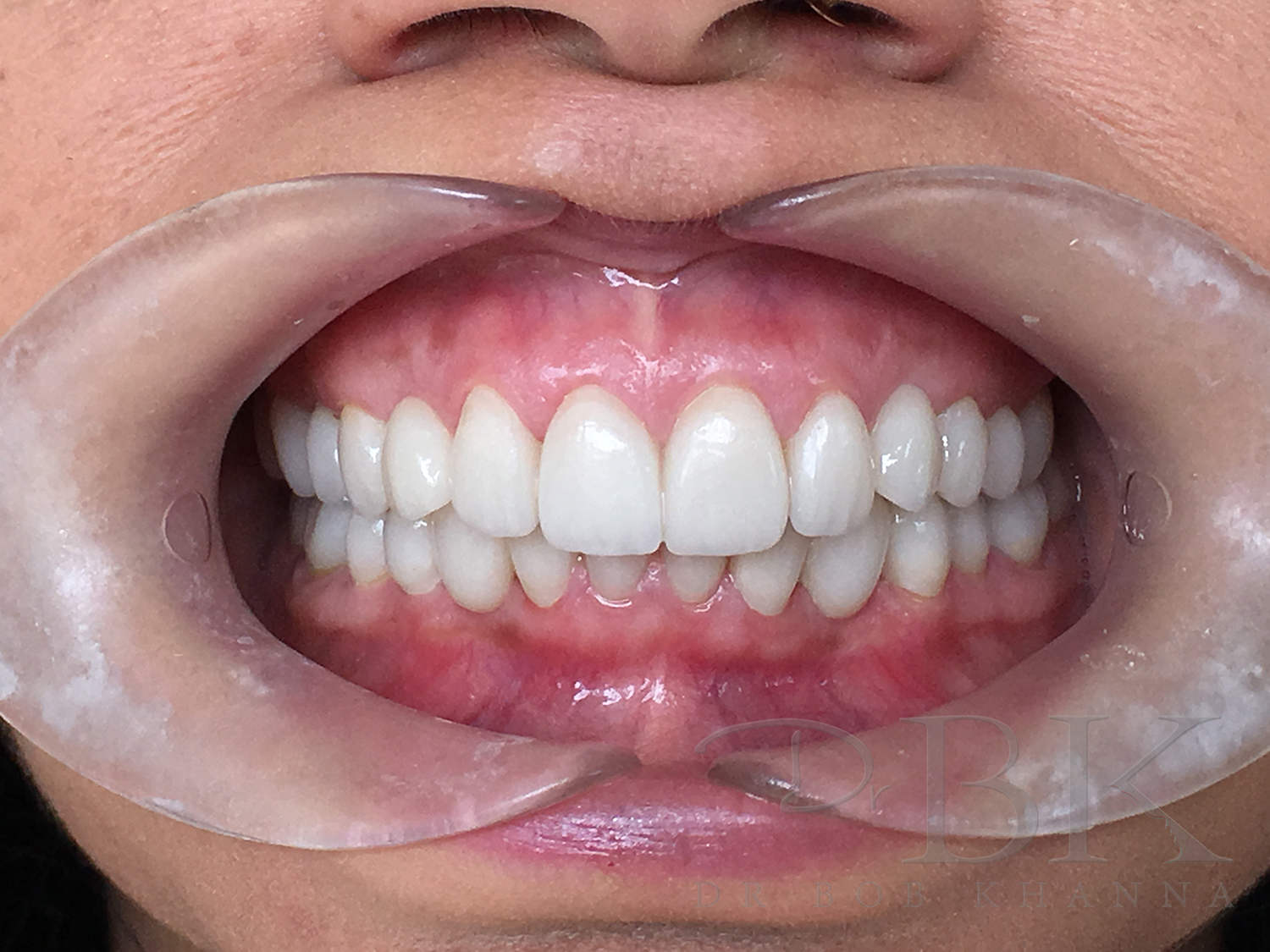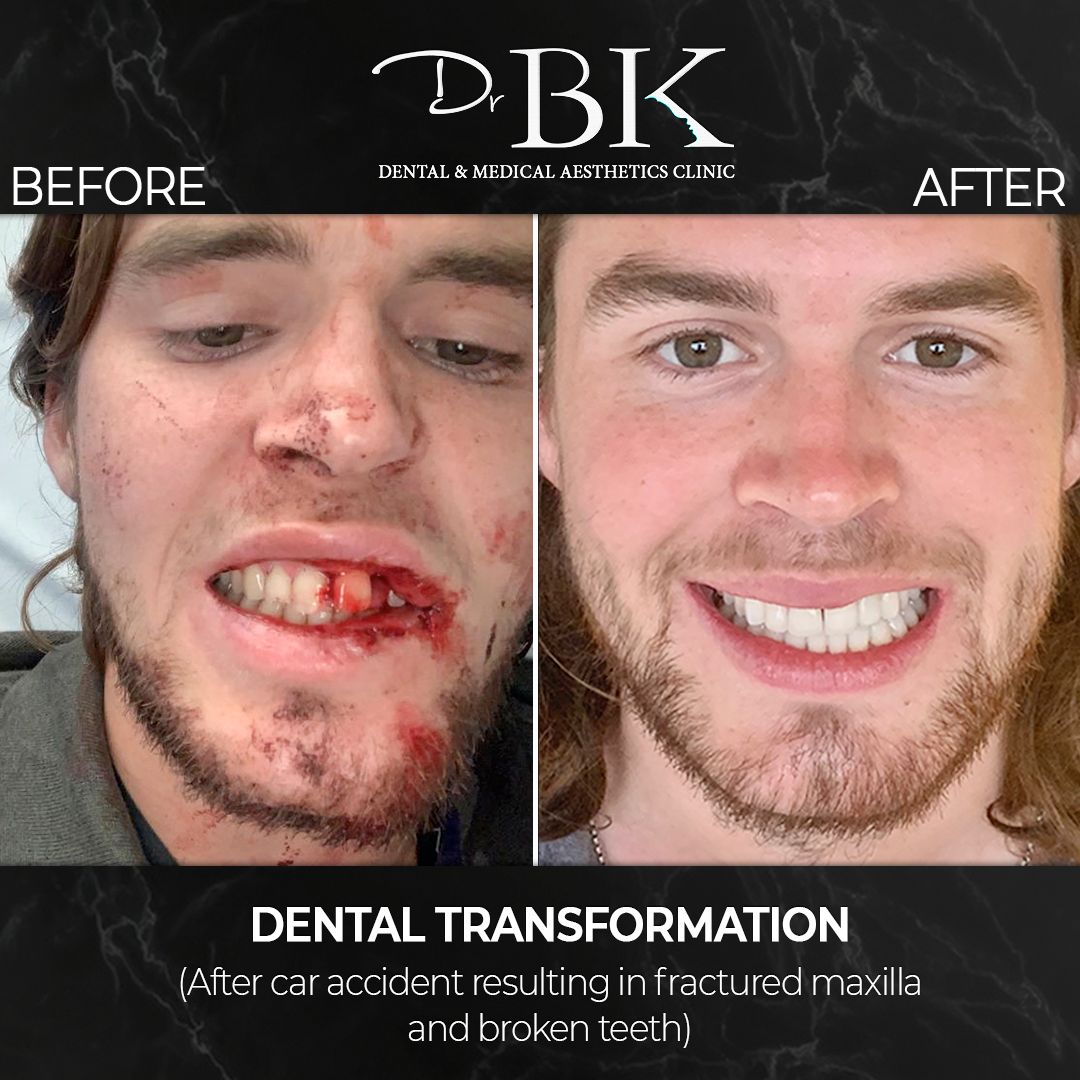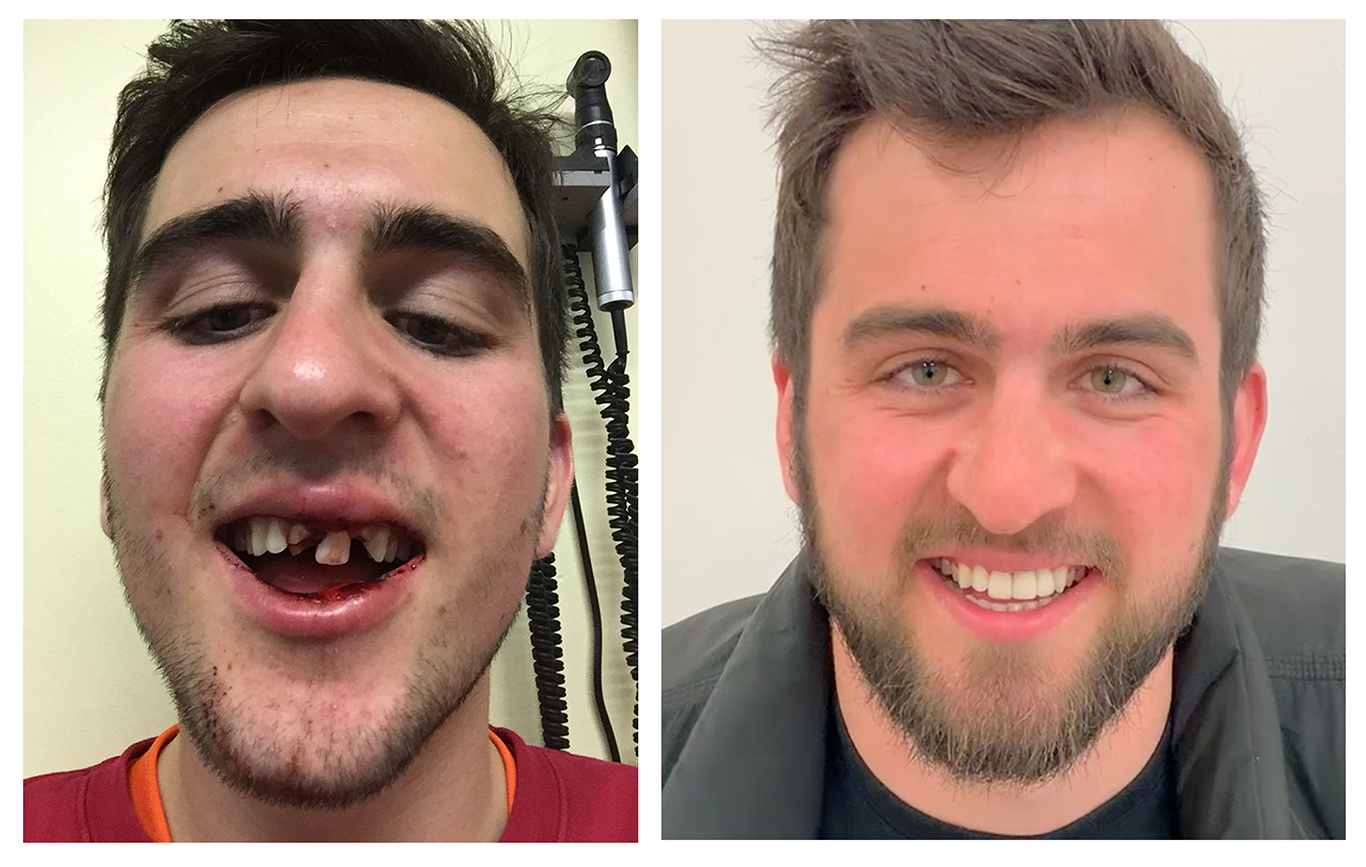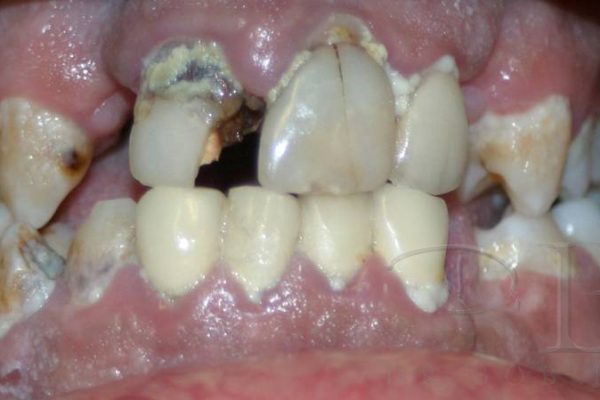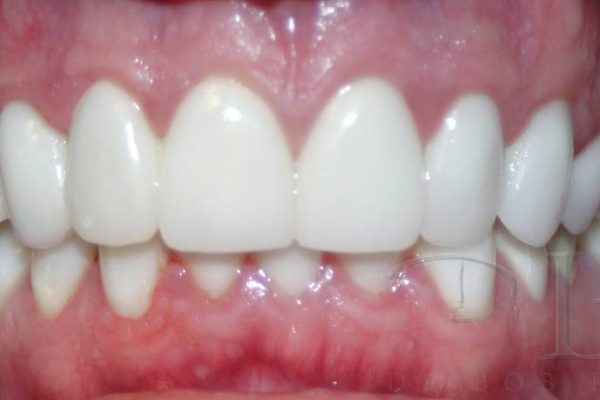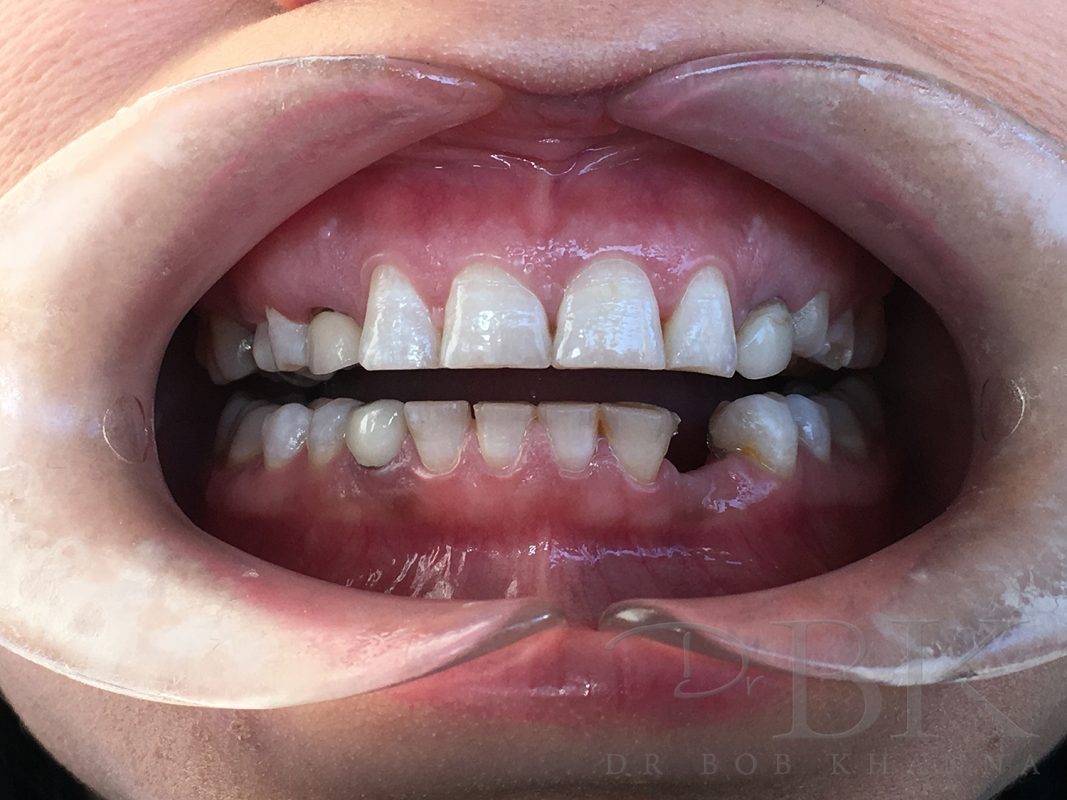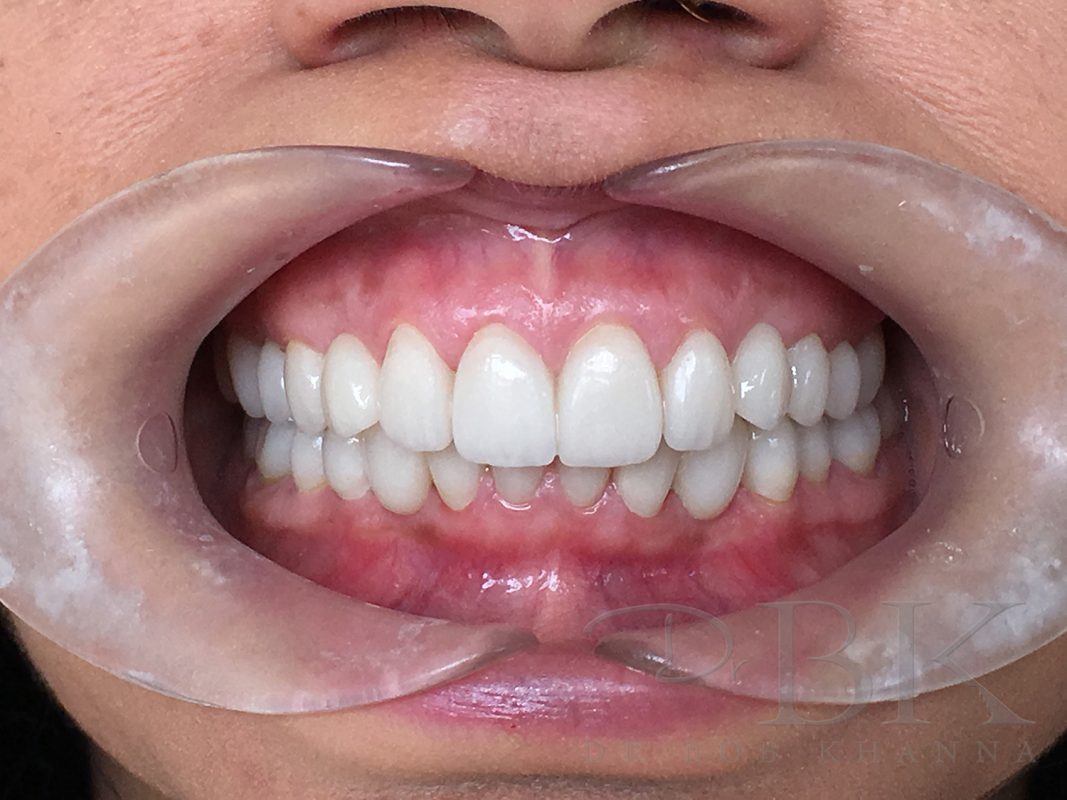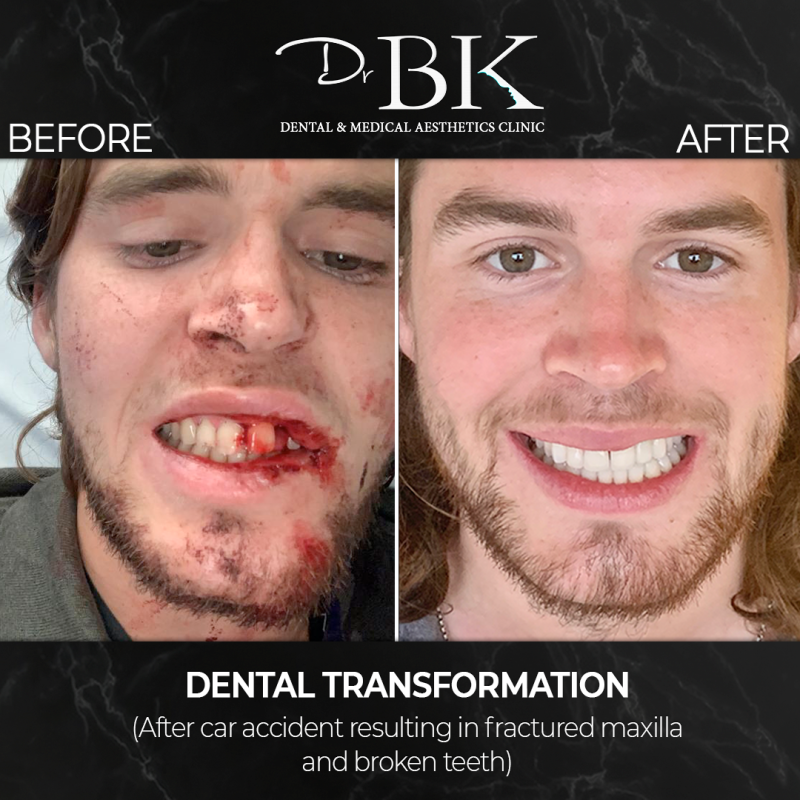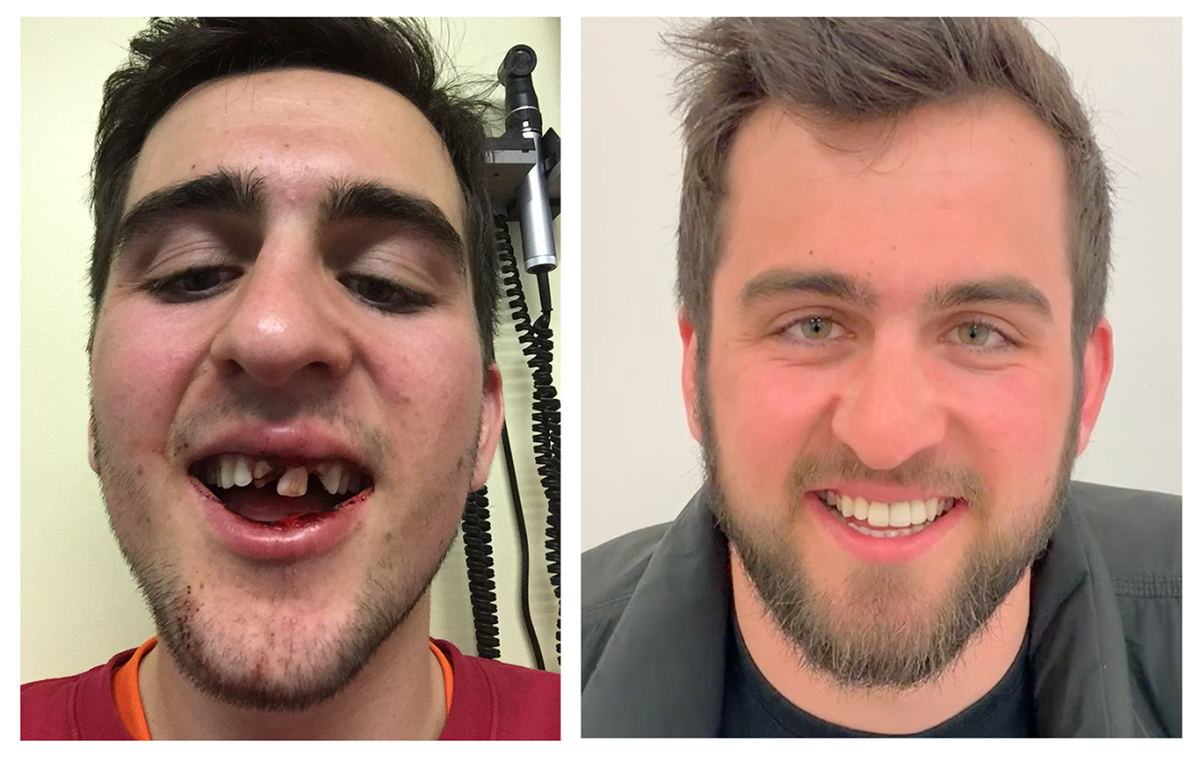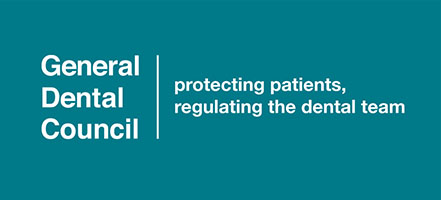
Dental Crowns
Dental Crowns – For replacing a damaged, weak, or missing teeth
Dental crowns are an artificial restoration that fit over the whole structure of a prepared tooth (or dental implant). They are sometimes known as a ‘cap’, and can be used for both functional and aesthetic reasons.
A dental crown is suitable for any tooth that has been damaged or weakened by decay and provides extra support of the structure to the remaining tooth. They are also suitable for replacing missing teeth using dental implants. Crowns are also used to improve the appearance of a tooth and your overall smile.
Crowns are extremely strong and resemble the shape of a natural tooth. At DrBK, they are crafted by a technician in our expert labs and can be made out of porcelain, ceramic or gold. Most people opt for porcelain or ceramic due to wanting a natural-looking tooth.
______
Pricing: From £998 per unit | View all fees and finance options
Dental crowns supported by an existing tooth
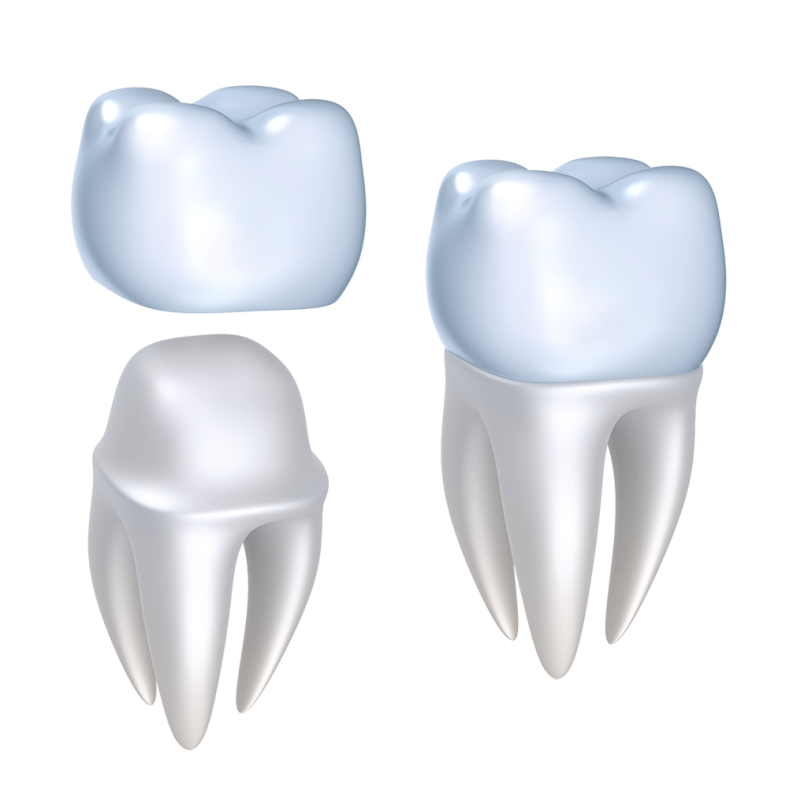 This treatment usually takes place over two separate appointments at our cosmetic dental clinic in Reading.
This treatment usually takes place over two separate appointments at our cosmetic dental clinic in Reading.
During the first appointment, the tooth structure is prepared. This will involve removing most of the outer surface of the tooth and leaving a strong inner core. You will be given some local anaesthetic to ensure you are comfortable during the procedure. We will then create a mould of your teeth using our 3D intra-oral scanner (yes that right – no need for nasty impressions!), discuss aesthetics (what colour/material you would like) and begin creating your bespoke crown(s).
Once your crown has been crafted by our lab technicians, you’ll come back for your second appointment. During this appointment, your permanent crown will be fitted.
______
Pricing: From £998 per unit
Dental crowns supported by implants
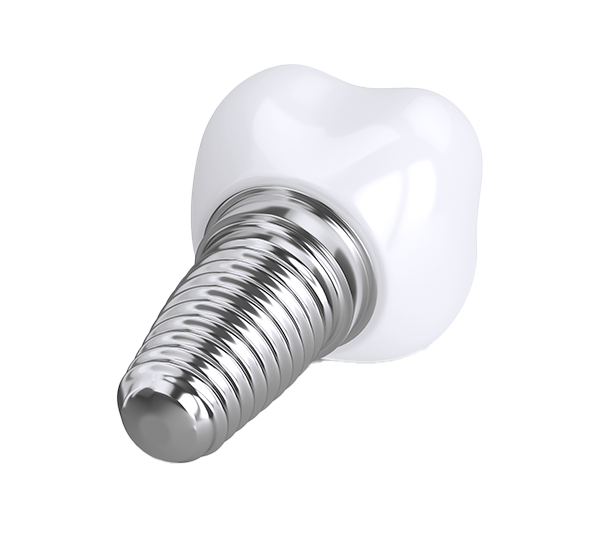 The procedure for crowns that rely on dental implants is a little bit more lengthy, but the end result is still the same. The first appointment will be the dental implant surgery, where the implant is placed into the jawbone. During this appointment it may be necessary to complete a bone grafting procedure to encourage new bone re-growth in the area.
The procedure for crowns that rely on dental implants is a little bit more lengthy, but the end result is still the same. The first appointment will be the dental implant surgery, where the implant is placed into the jawbone. During this appointment it may be necessary to complete a bone grafting procedure to encourage new bone re-growth in the area.
Once the dental implant has been placed we will then wait for your body to heal and the implant to integrate into the jawbone. This can take up to 6 months and is a vital part of the healing process. After this time, the implant will be strong enough to support a crown.
The next appointment will involve creating a mould of your teeth using our 3D intra-oral scanner (yes that right – no need for nasty impressions!) in order to make the crown. We will then discuss what shade of tooth would be most suitable for you.
Once our lab technicians have carefully crafted your crown you will then come back for a final appointment to fit the crown.
______
Pricing: From £1313 per unit
Before and After Photos
Frequently Asked Questions
Will I require a temporary dental crown?
No one wants to walk around with a missing tooth, so we will ensure to provide you with a temporary crown for the interim between appointments.
What if I have had a root canal treatment?
You are usually able to have a crown even if the tooth has had a previous root canal treatment. If a tooth has had a root canal filling, we may advise to have a 'post' inserted into the tooth to help support the crown. This can be placed directly into the root filling or our dental technicians can design a custom-made post to accurately fit the shape of the prepared root canal. The post is placed into the root canal and cemented in position ready for the crown to be attached over the top.
How long do crowns last for?
With proper care, crowns can last 10–15 years, sometimes longer. However, as with your natural teeth, crowns are still susceptible to decay around the edges. For this reason, it is really important to maintain a good oral hygiene regime and keep up with regular dental health examinations.
If your crown becomes worn out, cracked, or loose, it can be replaced.
What are dental crowns made of?
Crowns can be made from different materials, including porcelain, ceramic, metal (gold or silver alloys), zirconia, or porcelain fused to metal (PFM).
Does getting a crown hurt?
The procedure is usually painless since it's done under local anesthesia. You may feel mild soreness or sensitivity afterward, but it typically subsides within a few days.
What is the difference between crowns and veneers?
The key difference between crowns and veneers is that crowns are thicker, covering the entire tooth, whereas veneers are thinner and are designed to just cover the front of the tooth. When it comes to which is best for your teeth it really depends on the severity of the tooth condition.
Why would I need a dental crown?
Crowns are used to:
- Protect a weak or cracked tooth
- Restore a broken or worn-down tooth
- Cover a tooth with a large filling
- Support a dental bridge
- Cover a discolored or misshapen tooth
- Complete a dental implant
Can a crowned tooth get a cavity?
Yes! The tooth underneath is still vulnerable to decay, so good oral hygiene is essential.
Can a dental crown break or crack?
Yes, though rare. If your crown cracks or breaks, see your dentist as soon as possible for a repair or replacement.
How long does it take to get a dental crown?
It typically takes two visits:
-
The first visit includes tooth preparation, impressions, and placing a temporary crown.
-
The second visit, about two weeks later, is for fitting and cementing the permanent crown.
What is the aftercare for dental crowns?
- Avoid sticky, hard, or very hot/cold foods for the first 24–48 hours. Once fully set, you can eat normally.
- Brush and floss regularly, avoid biting hard objects (like ice or pen caps), and visit your dentist for routine check-ups.




